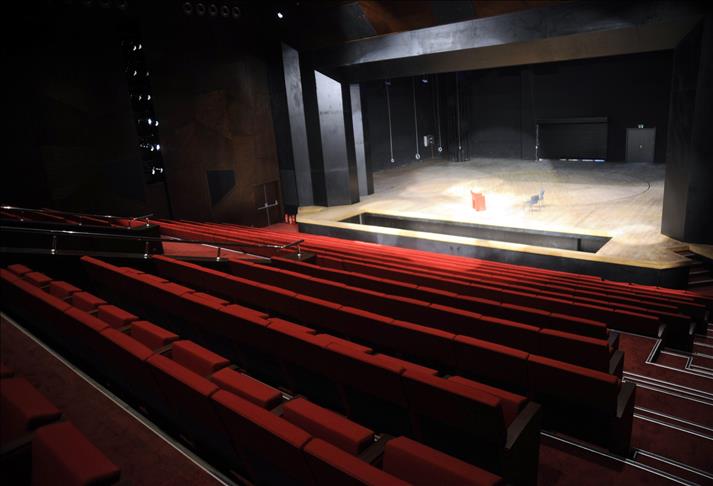
CAIRO
For years, theater was an outlet through which Egyptians could express their political views. More recently, however, plays with political themes have lost ground to comic productions, with most playwrights preferring to avoid contentious issues that could land them in trouble with the authorities.
Within the past five years, nearly 32 plays have been presented at Egypt’s state-run theatres – almost all of which were comedies.
“Political plays of the old fashion are no longer welcomed by Egyptian audiences,” theater director Khaled Galal told Anadolu Agency. “This has required us to insert social and comic sketches into our work.”
Galal recently directed a play entitled “Coffee without Sugar,” which tackled recent political and social developments in Egypt – albeit sarcastically.
“I’m a comedian who makes plays brimming with sarcasm, not purely political ones,” he said.
Recent years have seen a number of plays banned by the authorities for discussing overtly political issues.
In 2011, the authorities banned the play “Khedive” – after a 17-year run in Egyptian state theaters – for focusing on official corruption in Egypt.
Another play, “1980 and Upwards”, which criticized Egypt’s ruling regime, was likewise banned.
And a play originally produced in 1972 – which had explored the reasons for Egypt's military defeat by Israel in the 1967 Arab-Israeli War – was likewise banned by the censors.
“The state doesn’t like what we’re doing,” director Mohamed Gabr said. “We expose society’s ills.”
Egypt has been dogged by turmoil since a popular uprising in 2011 swept autocratic President Hosni Mubarak from power. In mid-2013, Mohamed Morsi – the country’s first democratically elected leader – was ousted by the military after only one year in office.
Last year, Abdel-Fattah al-Sisi, a former defense minister, assumed the presidency.
Ironic
Fatouh Ahmed, director of Egypt’s Theatrical Art House, believes the current preponderance of comic plays does not necessarily mean the end of politically-themed plays in Egypt.
“There’s a new form of the politically-themed theater, which relies mainly on irony and comedy, for which there is a greater demand… rather than purely political plays, which face the threat of censorship,” he said.
Comedian Sameh Hussein, for his part, said directors tended to shy away from strictly “political” plays to avoid confrontation with the authorities.
“Political themes often lead to confrontation with the state,” Hussein told Anadolu Agency.
Hussein is currently starring in a play entitled “I'm the President”. Based on a story derived from Russian literature, the play tackles the issue of institutional corruption.
“Our version of the play examines corruption in Egyptian society, the difficulties facing Egyptian youth, and public-sector corruption – all in a sarcastic way,” he said.
Art critic Magda Mouris, for her part, says today’s playwrights favor comedy, “for which there is popular demand and which stands to make a profit.”
“The history of Arab theater is full of political productions,” she went on to note, “many of which were ultimately banned.”
Anadolu Agency website contains only a portion of the news stories offered to subscribers in the AA News Broadcasting System (HAS), and in summarized form. Please contact us for subscription options.

